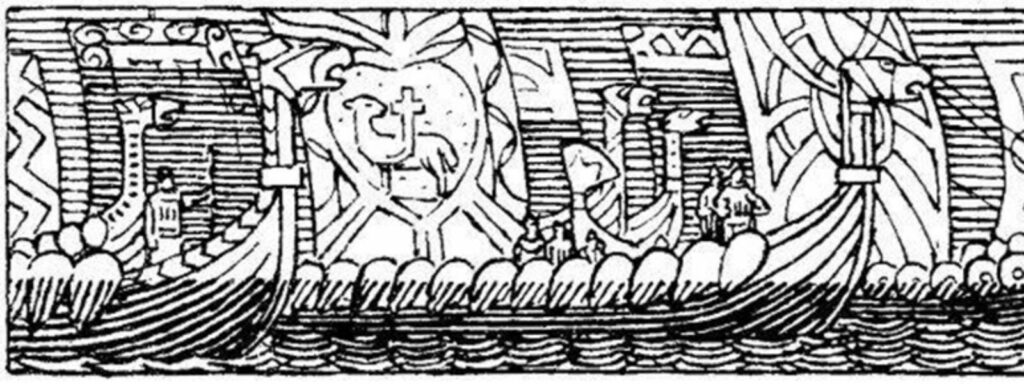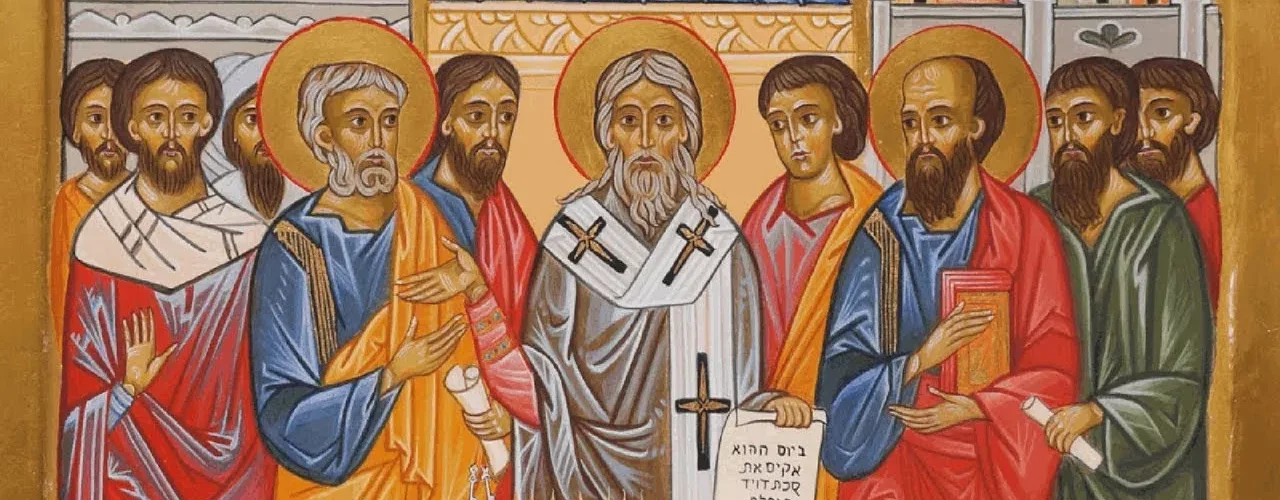Spiritual Progression
“The brightness of the day drives away the darkness and the great Light begins to appear.”
The Knight moves toward the paths of spirituality. We move from the material to the spiritual, from the means to the end. From the squire’s oath to the Knight’s oath, describing an arc. The passage from the mirror to the skull is accomplished, from John to the Book of Kings, from the artisanal to the priestly.
To speak of spiritual progression is somewhat reductive. If we develop the theme of spiritual progression, it means that we all follow the same path, as if there were only one. We should speak of progressions, according to each knight.
Should we speak of spiritual progression or my spiritual progression?
Let’s stay on topic; let’s try to examine why and how chivalry leads us inexorably toward this path.
The term progression can be defined as development, evolution, in stages, like a staircase or a ladder, the one that connects the earth to the rest of the universe. Spirituality is defined as a personal aspiration, which relates to the essential nature of man, the spirit but also his Mind. It would be a change of state of consciousness, towards a cosmogonic goal (study of creation), cosmological (study of the organization of the cosmos).
“Spirituality” comes from the Latin spiritus, from the Greek pneuma, breath, the power of life, vital energy. It is what sets the entire being in motion.
“Spirituality” should not be confused with “religion” in the secular sense, since it implies well-defined, determined sets of beliefs and laws that claim to provide sometimes uncompromising, often exclusive answers to questions about life and death.
The means of this progression can involve thought, feeling, reflection, speech, silence (the laying on of fingers on the marshal’s sword), morality (what chivalry demands is to love Justice, to revere it). Is there a tradition without moral values? No, because the initiation booklet to the ultimate degree confers them on us. The booklet shows the paths and maps that allow us to set out on the path. The railing still separates me from it. This is an exoteric, not an esoteric, demonstration. Only the tireless work of Man can enable us to lift the veil, an inner, esoteric work.
From Kant: “The moral law is indeed, for the will of an absolutely perfect being, a law of holiness; but for the will of all finite rational beings, it is a law of duty, a law of moral constraint.” Our knight’s booklet implicitly invites us to rise towards holiness, to cross the balustrade, in order to find, one day, the lost word and the Truth. But the Noble Commander and the knights have bestowed upon me a medal of Order. It is the survival of our distant ancestors, their spiritual testament. Made of organic material, this medal is not a tool. Different from that of tools made of minerals and plants. It is a sign, it does not open, it is the opening, the one that will allow the knights to access the Holy of Holies, in order to discover themselves, to create themselves. It gives access to Knowledge, a new initiation into another realm that separates the material from the immaterial, this passage from immanence to transcendence that leads the knight towards his goal, the search for spirituality. To accentuate the importance of this medal, the bit represents the idea, which brings to mind this Sufi truth that sees in the inner quest, the ascending path of light towards Unity.
Spiritual progression leads us to rediscover the traces of primordial traditions. Understanding and interpreting texts without pretension, asking questions, which, as the degrees progress, may perhaps bring imperfect answers, but always pointing towards the Light, towards a transcendence… The knight is in search of what is adogmatic, (chivalry has taken you out of the world of ignorance, prejudices and superstitions) but nevertheless sacred. Moving from a fragmentary vision to a broader knowledge. It is a question, by working, of understanding, not the house, but the houses of the Father, as John said. In short, approaching the esoteric paths that chivalry suggests to us. Reasoning, but above all intuition, allow us to access spiritual paths. The principle of all things is Spirit and the Word is the mediator. There is reason to reconcile Faith with Reason and the heart, Spirit with Matter, which we are. The true temple is not the one described in the booklet, but rather a human and not a material temple, also oriented. For, is there any need for a temple made of stones, to feel connected to the principles and to the universal and founding Principle of the very essence of life?
The search for spirituality has no limits. (Do not desecrate the word spirituality by according it to human conceptions. Absolute spirituality is inaccessible to the human spirit; it constantly approaches it, but never reaches it). Despite our efforts, the heavenly Jerusalem on earth is not for tomorrow; this is not proof of pessimism, but on the contrary it means that the search must allow us to consider the approach to the Beauty of the wise (sapiensa), and to the Force, in our conviction to approach the primordial Tradition, independent of all dogma. Let us rediscover the meaning of the sacred, the hidden, the superhuman. (There is nothing admirable except the universal Law which governs all things in their entirety and in their detail)
Our spiritual progression is partly suggested by the initiations.
It is at the knight level that this initiatory self-teaching begins. The booklet states that the goal of this level is “the study of the notions of Duty, Secrecy, Silence, and Reflection,” that it must “provoke a spiritual evolution leading to a broader understanding,” and that this cannot be conceived without the spirit of initiatory value, inner meditation, silence, and secrecy. Here are the tools and prerequisites for this approach.
It is indeed in silence that the initiate progresses. During the knighting ceremony, a number of phrases remind us that our search is incomplete, not to say faltering. This instruction is not complete. You don’t see clearly, you don’t understand well.
This initiation ritual is a psychological and moral preparation. It sets goals. The knighting ritual is the antechamber to spiritual progression. But it makes it clear that for the moment we are separated from it. It would be a period of probation, of observation by the knights of the commandery regarding the behavior but especially the true will of the novice. I think I know what awaits me at this level: always working while exchanging with the knights in order to progress, spiritually, you have understood that well.
I close my remarks
A.M. Nyctalus







